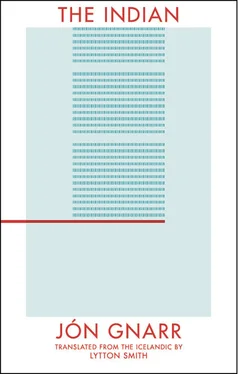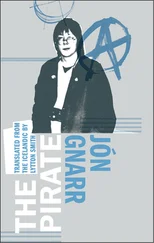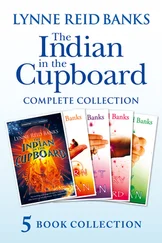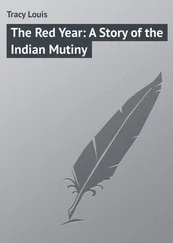I play by myself a lot, both Risk and the Fisheries game. That can last infinitely because I control the bank and can create new money. The bank lends to anyone who doesn’t have any money.
I like playing alone. No one interferes and stops things or is a sore loser. I sometimes lie awake the whole night playing by myself. Each game can take many days. Sometimes I win. But I lose a lot, too.
I mostly play indoor games in the winter. In spring, outdoor games start. There’s also no school. And during the summer I’m not really ever at home. I go out in the morning and come home for dinner. There’s no one at home except Grandma Guðrún. She’d rather just sit in her room, knitting and listening to the radio. My mom works in the cafeteria in the City Hospital. She makes food for the patients. She usually comes home with food for me in plastic boxes. Sometimes she has fruit cocktail and I get it for dessert.
If I go on a day trip, Mom makes me lunch. She puts milk or juice in a bottle and makes me a cheese sandwich with rye bread and French bread. I like mixing them.
Usually I go up to Big Forest. It’s not far away, close to Bústaða Church.
If Stebbi’s with me, we play cowboys and Indians or hold a meeting of the Indian Club. If Kristján Þór is with me, we play all kinds of games. But if I’m alone, I just mess about, throwing my knife at trees or spying on people who walk past going through the woods.
Sometimes people come into the forest to have a fight. It’s very exciting to sneak up close to them and hear what they are saying. Sometimes people kiss. Once, a grown man and a woman were cuddling up against a tree. They didn’t say anything; they just made cuddling noises. I was right next to them, behind the man. The woman didn’t see me because she had her eyes closed. I think they were getting laid. They kissed and he kept pushing her against the tree, again and again. I wanted to leap out at them or make fun of them somehow, but I didn’t dare.
I also sometimes go to Öskjuhlíð. It’s fun there. But it’s a long walk and it sucks if it starts raining. I usually only go when it’s really great weather. There’s a forest. The best thing is playing in the plane the Fire Department uses for practice. You can go inside. It’s totally burned up but it still has seats and a cockpit. If you walk towards the back, the tail falls down with a heavy thud. Then if you run towards the cockpit, the nose falls down and slams into the ground so you get flung forward.
On Öskjuhlíð, there are all kinds of tunnels and bunkers the British military left behind. After the war, my parents lived in the old barracks huts on Skólavörðuholt, where Hallgrím’s Church is now. They shared a Nissen hut with another couple. My brother Ómar grew up in the hut. There were no radiators; the hut was heated by a single stove in the center of the room.
Mom sometimes tells stories about this period. My favorite story takes place at Christmas. Mom and the other woman had cleaned the whole hut from floor to ceiling. Then, while Mom was in town, my dad came home with firewood: he’d found an old telephone pole.
The pole was so long that he just put one end into the stove. When Mom came back, Dad was sitting like he was hypnotized, staring into the fire. The pole had been treated with tar and the stove was open: black soot now covered the hut Mom had just cleaned.
— What the hell have you been doing? Mom shouted.
Dad didn’t notice anything; he simply stared at the fire.
— Remarkable how the stones explode in the heat, he muttered.
It’s a funny story. I think Dad’s great in it. I want to be like that when I grow up. There’s lots I want to do with my dad. I wish he felt I was interesting and wanted to be around me and didn’t find me annoying.
Once, I was home alone with Dad when Mom went to London. We were watching TV and I asked Dad to make popcorn. The popcorn was so disgustingly salty; it was inedible. Dad thought it was fine. But I couldn’t eat it. He left the room again and I followed him. He was fixing the popcorn by putting sugar in it so the taste of the salt would disappear. I tasted the popcorn but it was even more yucky than before, salty and sweet. So he rinsed it under water and tried to wash the salt and sugar off, but the popcorn just became wet crap that we had to throw out. My dad was really astonished.
I thought that was great. That time, Dad was fun. I’m sure he’s like that at work, all the time.
Once, Mom told him to make meat soup. She told him what to put in it. Dad put everything together in a saucepan. He remembered her telling him that he should put cornflakes in, too, so he put the whole package of cornflakes in the pot and then the soup became some kind of cornflake porridge with meat and rutabaga.
— What got into your mind?
— Didn’t you tell me to put these in?
— Cornflakes? Does that even make sense?
Dad tasted the soup-porridge.
— I think it tastes good!
I wish my dad was like this more often, and allowed me to spend time with him.
It’s fun when Dad’s in a good mood. That’s when he’s being himself, not just pretending. It makes me feel loved. I hate it when he’s bullshitting me or twisting what I say and trying to mock me.

During the summer, Kristján Þór and I sometimes go down to Elliðaár River. I’ve been going there since I was little. I almost drowned once when I fell into the river. There was a man who saved me.
We fish for salmon under the bridge. It’s easy. We arrange a line of rocks in a circle in the water by the bank and trap the fish inside. Then we reach them by grabbing them and throwing them on the land. One time, a man came from the paper and took a picture of us. The news in the paper said that no one fished in the Elliðaár except for two resourceful boys.
I was very proud of this. Dad cut out the article and boasted about it to a guy in the street. He said that I’d inherited his fishing skills. He was proud of me and that felt good.
When I was little, I once cycled all the way down to the harbor and caught scorpion fish. At the time I had a blue Velamos bike; later, I got a Chopper. I put the scorpion fish in a bag and took them home and gave them to Mom.
— I hunted us some dinner, I announced.
Mom took the scorpion fish and threw them in the trash without me seeing. Then she took some haddock out of the freezer and boiled it instead, but she told me it was scorpion fish. She only told me the truth later. I ate the fish with the best appetite. The tastiest scorpion fish I ever ate.
I’ve heard that fish tastes best if you have caught it yourself. Mom tells the story sometimes and we laugh about it together. I like it when I do things Mom enjoys. So much of the time I’m simply an annoyance.

When we’re done playing, we get milk and cookies from Gummi’s mom.
— How’s your mother?
— Good, I reply.
Mom and Dad are different from other parents. They’re old. They’re often tired and need to rest. They are often tired of me. I can be a challenge. Other kids’ parents never take naps. But I’m not like other kids. Perhaps they always need to take naps because I’m so weird.
After dinner, all the kids meet at the parking spots and play dodgeball. That’s fun. All the kids are playing together. It’s easy to play dodgeball. It’s not nearly as complicated as soccer. I’m bored by soccer. When the kids play soccer, they’d prefer it I wasn’t allowed to take part. That’s just as boring. It’s better to be included than excluded. I have to stand and watch and I don’t know what to do.
Читать дальше




![О Генри - Бабье лето Джонсона Сухого Лога [The Indian Summer of Dry Valley, Johnson]](/books/407344/o-genri-babe-leto-dzhonsona-suhogo-loga-the-india-thumb.webp)









